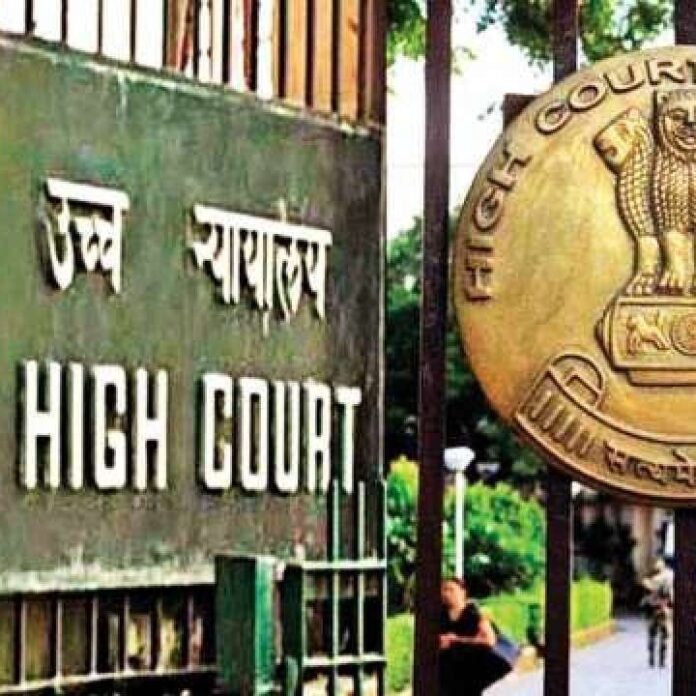Delhi High Court Takes Action Against Defacement During DUSU Elections, Demands Accountability from Candidates
On October 21, the Delhi High Court expressed concerns over the conduct of student candidates during the Delhi University Students Union (DUSU) elections and called for immediate corrective action. The court asked the vice-chancellor of Delhi University to be “proactive” in addressing the issue of public property defacement during the elections, which took place on September 27. As part of the proceedings, the court issued notices to 15 student candidates, summoning them to appear on October 28 to explain their conduct and declare their political affiliations.
A Public Interest Litigation (PIL) had been filed, urging action against student organizations and DUSU candidates responsible for damaging public walls and property during the election campaigns. The court made it clear that the results of the DUSU elections would not be declared until the defacement issue had been fully addressed. Vote counting, originally scheduled for September 28, was postponed until the cleanup was completed.
The incident occurred after widespread defacement of public and private property, with posters, banners, and graffiti plastered across various locations in the city. Despite initial notices, the campaign materials had not been removed, prompting the court to intervene. The Municipal Corporation of Delhi (MCD) reported that it had hired private contractors to clean the vandalized areas, at a cost of Rs 1 crore, covering 12 zones. The MCD requested that Delhi University deposit this amount to cover the expenses of the cleanup.
The High Court took a firm stance on the matter, questioning the lack of action by both Delhi University and the Delhi Police. The bench, led by Chief Justice Manmohan and Justice Tushar Rao Gedela, expressed surprise at the university’s inaction, pointing out that vehicles without number plates, including luxury cars, were used in the election campaigns without any interference from the authorities. The court criticized the vice-chancellor for his passive approach and urged him to take corrective measures or face further court orders.
The court emphasized that if candidates could afford to campaign using luxury vehicles, they should also be able to fund the cleanup efforts. It pointed out that students must take responsibility for the damage caused and work towards rectifying it. The court warned that it would not lift the stay on vote counting until the defaced areas were restored.
Delhi University’s claim that 90% of its campuses were free from defacement was challenged by the standing counsel for the MCD and the petitioner, Advocate Prashant Manchanda. The petitioner presented evidence, including photos, videos, and a memo, highlighting the extent of the defacement, which spanned public roads, college campuses, green spaces, and even reached the walls of police stations and embassies. The court expressed its dismay at the situation and questioned why students were allowed to engage in “hooliganism” on public highways.
The court further highlighted that such disruptive behavior had not been seen in municipal elections, raising concerns about the administration’s failure to maintain order during the university elections. It instructed Delhi University’s attorney to inform the vice-chancellor that the current situation was an administrative failure, and immediate steps should be taken to rectify the damage and maintain public order.
Delhi Police were also criticized for their inaction, particularly regarding the presence of vehicles without number plates during the campaigns. The court urged the police to take action against these violations and ensure that such incidents do not occur in the future.
The court’s ruling placed the responsibility of cleaning up the defaced areas on the candidates themselves, with an expectation that they would cover the cost of the damage. It made it clear that the counting of votes would be allowed only after the defacement issue was fully addressed. The court emphasized that elections should be a celebration of democracy, not an opportunity for misconduct or “money laundering.”
Meanwhile, the Chief Justice also pointed out the broader civic issues facing Delhi, including the rise in dengue and malaria cases, which he attributed to persistent littering and poor sanitation. The court expressed concerns that the behavior exhibited during the student elections was contributing to these larger civic problems, further underlining the need for immediate corrective action.
The case also involved applications from two candidates contesting elections at different Delhi University colleges, seeking a declaration of election results. These candidates assured the court that they would work with their peers to clean and repaint their college premises in collaboration with the university. This effort is part of a broader petition aimed at holding student organizations accountable for damaging public property during the election campaigns.
As the Delhi High Court continues to monitor the situation, it has instructed the police, MCD, and Delhi University to provide updated status reports on the cleanup efforts. The court’s firm stance on holding student candidates accountable sends a clear message about the importance of civic responsibility and maintaining public order during elections. The hearing has been scheduled for October 28, when the implicated candidates are expected to explain their actions and take steps to rectify the damage caused.

